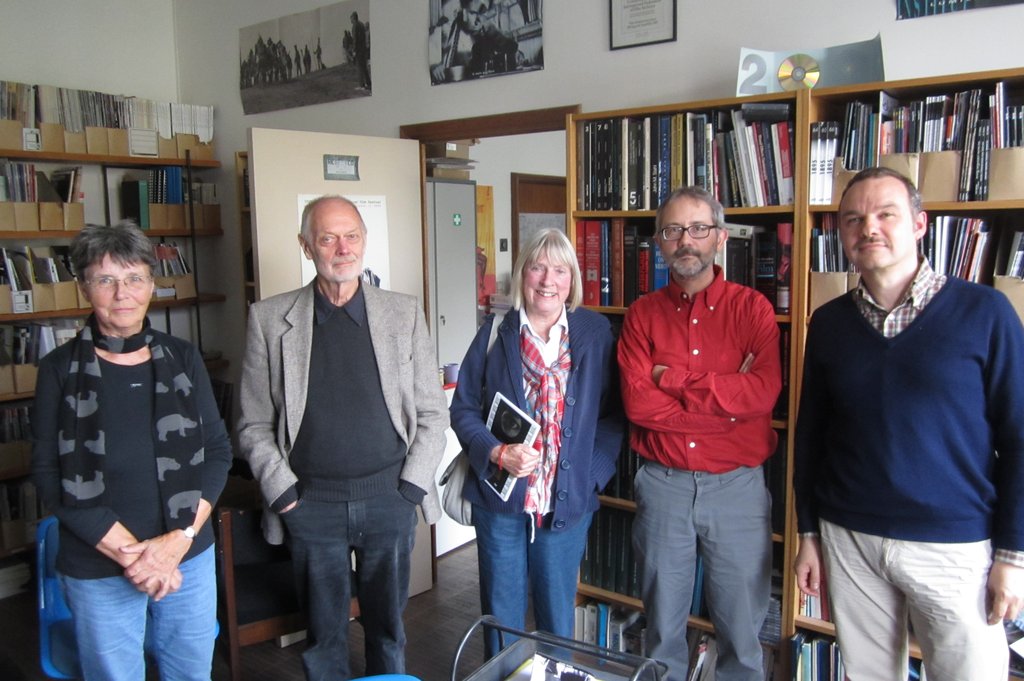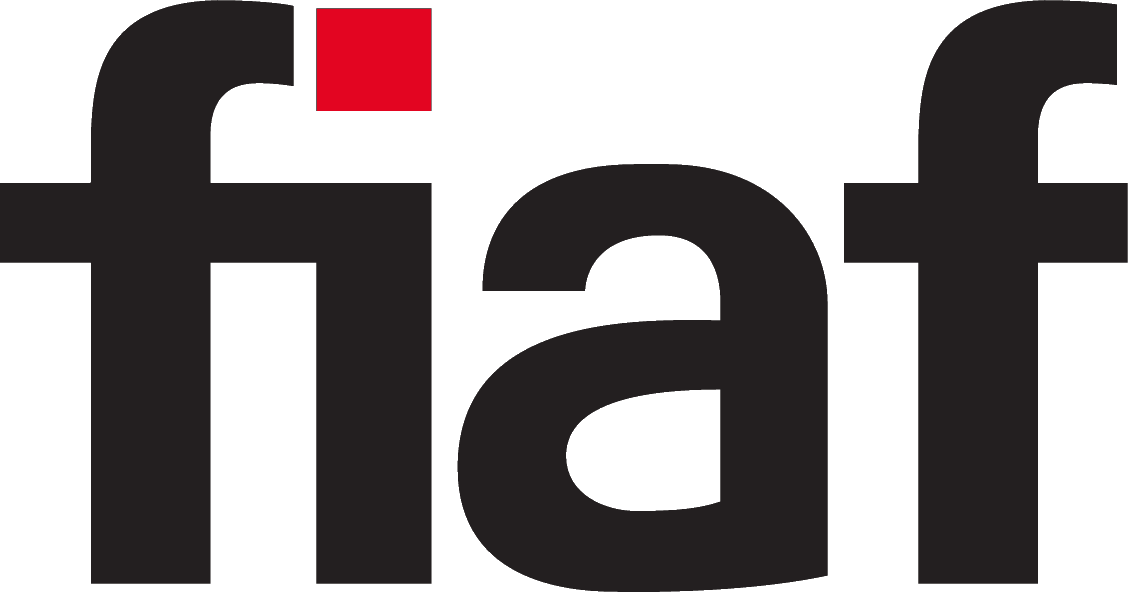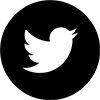P.I.P. Timeline
June 1966
At the FIAF Congress in Sofia, a report from Gosfilmofond on the “coordination of documentation and research among FIAF members” is discussed. It was decided that the Deutsches Institut für Filmkunde (DIF) would send a questionnaire to all FIAF affiliates inquiring about the periodicals they regularly indexed.
June 1967
The results of the questionnaire are officially published by the DIF.
Creation of the Commission on Cataloguing and Documentation, headed by Brenda Davies of the BFI, at the London Congress. Its initial programme of work includes “a study of the coordinating of the indexing of periodicals”.
February - March 1969
The Commission on Cataloguing and Documentation decides to start an exchange of indexing information on sheets. A specimen “guide sheet” based on a single issue of Sight and Sound is produced. The FIAF members represented in the Commission agree to produce and exchange similar sheets for periodicals from their own countries. Later a circular is sent to all FIAF members, encouraging them to take part in the scheme.
May 1969
The Commission on Cataloguing and Documentation splits into two separate commissions, one for Documentation and one for Cataloguing.
October 1969
The new Documentation Commission pursues its discussions on the indexing of periodicals. Karen Jones, librarian of the Danish Film Museum and Commission member, proposes to develop a standard card system in the form of indexing cards which would accommodate all existing indexing systems.
October 1970
The Documentation Commission meets in Budapest to evaluate various methods of exchanging indexing information, and decides that a card system would be the most appropriate method. Karen Jones is asked to prepare a project description for the next meeting of the Documentation Commission.
April 1971
The Documentation Commission approves Karen Jones’ ‘Report on Exchange of Indexing Information’, which is mailed to all 47 FIAF member archives, together with a questionnaire soliciting their opinion on the project.
June 1971
Karen Jones presents a proposal at the FIAF Congress in Wiesbaden to establish “a project for international cooperation in the indexing of film periodicals” (there is no official name yet). The proposal is accepted, and 20 archives present at the Congress agree to subscribe to the indexing card service.
October 1971
Special meeting of the Documentation Commission in Prague, which is almost completely dedicated to the ‘F.I.A.F. Periodical Indexing Project’.
December 1971
Three indispensable publications needed for the project are published by the Danish Film Museum in both an English and a French version: List of Subject Headings; Guidelines for Filing; and Guidelines for Indexing.
January 1972
FIAF’s Periodicals Indexing Project starts, with its central office hosted by the Danish Film Museum in Copenhagen and Karen Jones as P.I.P. Editor.
February 1972
A contract is signed with the American publishing house Bowker to produce the annual volume under the title International Index to Film Periodicals, which would become the official publication name of the P.I.P. databases.
Mid-1972
The P.I.P. card subscription service, which was originally conceived as an internal service for FIAF affiliates, is opened to external subscribers.
January 1973
Michael Moulds takes over as P.I.P. Editor from Karen Jones. He works half-time, doing the editing work from his house in London, while the typing and card reproduction are done in Brussels at the FIAF Secretariat.
September 1973
Publication of the first volume of the International Index to Film Periodicals, containing all the indexing contributions from 1972. One free copy is sent out to each FIAF member archive.
December 1973
P.I.P. Editor Michael Moulds can’t reach an agreement with FIAF on the terms of a new full-time contract, so he declines to stay on after March 1974 when his original contract expires.
May 1974
Karen Jones takes a one-year of leave of absence from the Danish Film Museum and is reinstated as P.I.P. Editor. She sets up a new central office in London on Shaftesbury Avenue, not far from the BFI.
November 1974
The Documentation Commission creates the P.I.P. Subcommission, in order to quickly address emerging challenges and crises regarding the P.I.P.
March 1975
After Bowker withdraws as publisher of the International Index to Film Periodicals, a contract is signed with St. James Press, a British publishing house owned by Macmillan, starting with the 1974 volume. The new publisher refuses to offer free copies to FIAF members.
April 1975
Karen Jones ends her year of leave from the Danish Film Institute.
May 1975
After the return of Karen Jones to the Danish Film Museum, Frances Thorpe is hired as the new P.I.P. Editor.
June 1975
Eileen Bowser obtains a grant of $15,000 from the National Endowment for the Arts in the U.S. to sustain the P.I.P.
October 1975
The FIAF Executive Committee decides that the P.I.P. Editor automatically becomes an ex-officio member of the Documentation Commission.
June 1978
The Bulgarian Ministry of Culture announces that they will subsidize the continuing publication of the International Index to Film Periodicals for 3 years (1979‒1981).
September 1978
Lira Fernandes is hired as part-time Information Assistant to assist the Editor with the editing of the received indexing.
December 1978
Macmillan withdraws as publisher, after which FIAF decides to publish the 1978 annual volume itself.
Janurary 1979
The P.I.P. creates a new indexing service for television journals, the International Index to Television Periodicals.
February 1980
FIAF signs an agreement with Infodoc Services regarding the subletting of an adjoining office space on the same floor of the Shaftesbury Avenue building.
January 1981
Michael Moulds officially returns as P.I.P. Editor, this time with a full-time contract.
May 1981
At the FIAF Congress in Rapallo, 12 FIAF archives agree to pay a voluntary extra fee to support the activities of the P.I.P.
June 1982
At the FIAF Congress in Oaxtepec, the document ‘Principles for the Operation of the P.I.P. with the help of supporting archives’ is adopted. Since then the name ‘P.I.P. Supporters’ has been generally used within FIAF to designate the group of affiliates who contribute extra funds to the P.I.P. to support its activities.
On 28 June 1982 Karen Jones and Michael Moulds receive the BFI Special Award for their work on the International Film and Television Periodicals indexes on behalf of the Documentation Commission at the National Film Theatre in London.
August 1982
The first indexing workshop takes place at the BFI Library from 6 to 9 August 1982. The workshop was conducted by P.I.P. Editor Michael Moulds and his two predecessors, Karen Jones and Frances Thorpe.
January 1983
For the first time the P.I.P. staff enters the indexing data on a computer. The P.I.P. doesn’t have its own computer yet, but they are allowed to use the computer of Infodoc Services, which has sublet the adjoining office since 1980.
March 1983
The original card service is replaced by a microfiche service.
April 1983
The first printed volume of the International Index to Television Periodicals (1979-1980) is published.
January 1987
The P.I.P. acquires its first computer. Computaprint designs a new relational database system based on Revelation Software, an MS-DOS application development system which permits the encoding of international diacritics.
March 1987
The P.I.P. moves to another London office, at Canalot Studios on Kensal Road in Westbourne Park.
April 1988
Anthony Blampied is hired as half-time Assistant Editor, changing to full-time in July 1988.
July 1993
The P.I.P. office moves to Nottingham Street, in west-central London.
December 1993
Launch of the International FilmArchive CD-ROM, which replaces the microfiche service. The first ‘Autumn 1993’ disc includes, besides P.I.P. content (International Index to Film Periodicals, International Index to Television Periodicals), 2 other FIAF databases (the List of FIAF Members and the Bibliography of FIAF Members Publications).
January 1994
The P.I.P. starts to re-key indexing data from the pre-computer era.
April 1994
The P.I.P. decides to cease publication of the print volumes of the International Index to Television Periodicals.
October 1996
The P.I.P. office moves to Brussels and merges with the FIAF Secretariat in a building located on Rue Defacqz.
April 1997
The FIAF Executive Committee decides to merge the Documentation and the Cataloguing Commissions into one single commission, the Cataloguing and Documentation Commission.
May 1997
Meeting of the CD-ROM Editorial Board at the FIAF/P.I.P. office in Brussels.
October 1997
Michael Moulds retires as P.I.P. Editor on 31 October 1997.
The FIAF Executive Committee meets in Beijing (27-29 October) but doesn’t appoint a new Editor. Catherine Surowiec is hired as consultant to write a detailed survey on the current state of affairs of the P.I.P.
January 1998
The preliminary report of Catherine Surowiec is delivered, followed by a full final report in March.
March 1998
Rutger Penne starts as new P.I.P. Editor.
August 1998
A new typesetting programme in FrameMaker is installed in the Brussels office, which allows the P.I.P. to deliver camera-ready copy directly to the printer for the production of the print volume.
November 1998
Presentation of a new 3-year action plan for the P.I.P.
December 1998
P.I.P. contributors can directly index in a new remote version of the MS-DOS Revelation software database used in the Brussels central office.
Publication of the Autumn 1998 edition of the International FilmArchive CD-ROM, which for the first time cumulates complete data from all volumes of the International Index to Film Periodicals and the International Index to Television Periodicals (1972‒1998) on a single disc.
January 1999
The P.I.P. stops the International Index to Television Periodicals (although television-related content in film periodicals continues to be covered by the P.I.P.).
June 1999
Anthony Blampied leaves. He is replaced by Gail Rubenstein as P.I.P. Assistant Editor (September 1999).
FIAF signs a partner publishing agreement with Belgian software firm IVS, which is licensed to use ERL (electronic reference library) technology provided by SilverPlatter.
October 2000
Publication of a new version of the International FilmArchive CD-ROM using ERL technology from SilverPlatter.
February 2001
First online publication of all the databases featured on the CD-ROM. A new publication name, FIAF International FilmArchive Database, is introduced. A subscription now includes two CD-ROM updates per annum and quarterly updates on the Internet.
April 2001
SilverPlatter starts to distribute the FIAF International FilmArchive Database for all external clients.
June 2001
Wolters Kluwer purchases SilverPlatter, and Ovid Technologies (a subsidiary of Wolters Kluwer) becomes responsible for the worldwide distribution of the FIAF International FilmArchive Database.
November 2001
P.I.P. indexing workshop for Latin American film librarians at UNAM in Mexico City, in collaboration with Biblioci, the network of film documentation specialists in the Spanish-speaking world.
December 2002
Publication of an article on the history of the P.I.P. in the Journal of Film Preservation to mark the project’s 30th anniversary.
September 2004
Start development work on the new web based indexing database.
July 2005
FIAF signs a distribution agreement with ProQuest.
May 2006
ProQuest releases the different FIAF databases on the Chadwyck-Healey platform under the name FIAF International Index to Film Periodicals.
October 2006
ProQuest launches FIAF Plus: a full-text film journals package linked to the records of the International Index to Film Periodicals.
January 2007
Launch of FIAFCat, a new web-based indexing system, which enables P.I.P. contributors to access the central database through the Internet.
May 2007
ProQuest includes the FIAF International Index to Film Periodicals in Film Indexes Online, in combination with two other important film databases, Film Index International and the AFI Catalog, both produced by FIAF affiliates (the BFI and the AFI).
June 2007
All P.I.P. contributors receive the first version of the Indexing Procedures in FIAFCat (including numerous illustrative screenshots from the system).
January 2008
All P.I.P. contributors receive a completely revised edition of the P.I.P. Indexing Rules.
October 2008
The Fall 2008 edition of the FIAF International FilmArchive Database is the very last disc published in the series.
May 2009
The P.I.P. databases are officially released on the OvidSP platform, introducing a new publication name, FIAF Databases (including International Index to Film Periodicals).
June 2010
Associate Editor Gail Rubenstein leaves. She is replaced by Anthony Blampied, who returns to the P.I.P. after an absence of 11 years (September 2010).
October 2010
Presentation of the new P.I.P. Strategic Plan to the FIAF Executive Committee.
2011-2012
Global financial crisis hits FIAF and the P.I.P.
April 2012
Publication of a special dossier on the P.I.P. in the Journal of Film Preservation to mark the project’s 40th anniversary. It includes interviews with former editors Karen Jones and Michael Moulds.
September 2012
All the former editors of the project (Karen Jones, Michael Moulds, and Frances Thorpe) come to Brussels on 14 September to celebrate the 40th anniversary of the project with the current P.I.P. staff.

Karen Jones, Michael Moulds, Frances Thorpe, Rutger Penne, and Anthony Blampied in the P.I.P. Office in Brussels, September 14, 2012
September 2013
The last print volume (41) of the International Index to Film Periodicals is published.
September 2014
The P.I.P. office and the FIAF Secretariat move to another office in Brussels (Rue Blanche 42).
November 2015
A new, revamped version of the FIAF website is launched, featuring several P.I.P. related sections, such as ‘History of the P.I.P.’, ‘P.I.P. E-Resources’, and ‘P.I.P. Contributors & Supporters’.
January 2016
The P.I.P. starts officially indexing electronic journals.
All the Chadwyck-Healey film databases (FIAF International Index to Film Periodicals, Film Index International, and AFI Catalog) are migrated to the new ProQuest platform, and are re-launched under a new name, Screen Studies Collection.
September 2016
Five qualified freelance indexers are hired to help the P.I.P. with the indexing of electronic journals.
April 2017
Rutger Penne presents a paper on FIAF’s Periodicals Indexing Project at the Film Librarians Conference (Los Angeles).
2018
Commercial success of the Index on the ProQuest platform.
March 2019
A complete, comprehensive index of all the issues of the FIAF Information Bulletin (1972‒1985), the Bulletin FIAF (1986‒1993), and the Journal of Film Preservation (since 1993) is published on the FIAF website.
March-June 2020
Despite being confined at home due to COVID-19 lockdown measures, the P.I.P. continues to operate more or less normally.
September 2022
To mark the 50th anniversary of the P.I.P., a special celebration book is published within the framework of the FIAF History Project. The book is officially presented during a 2-day celebratory event in Copenhagen, where it all began in 1972.





